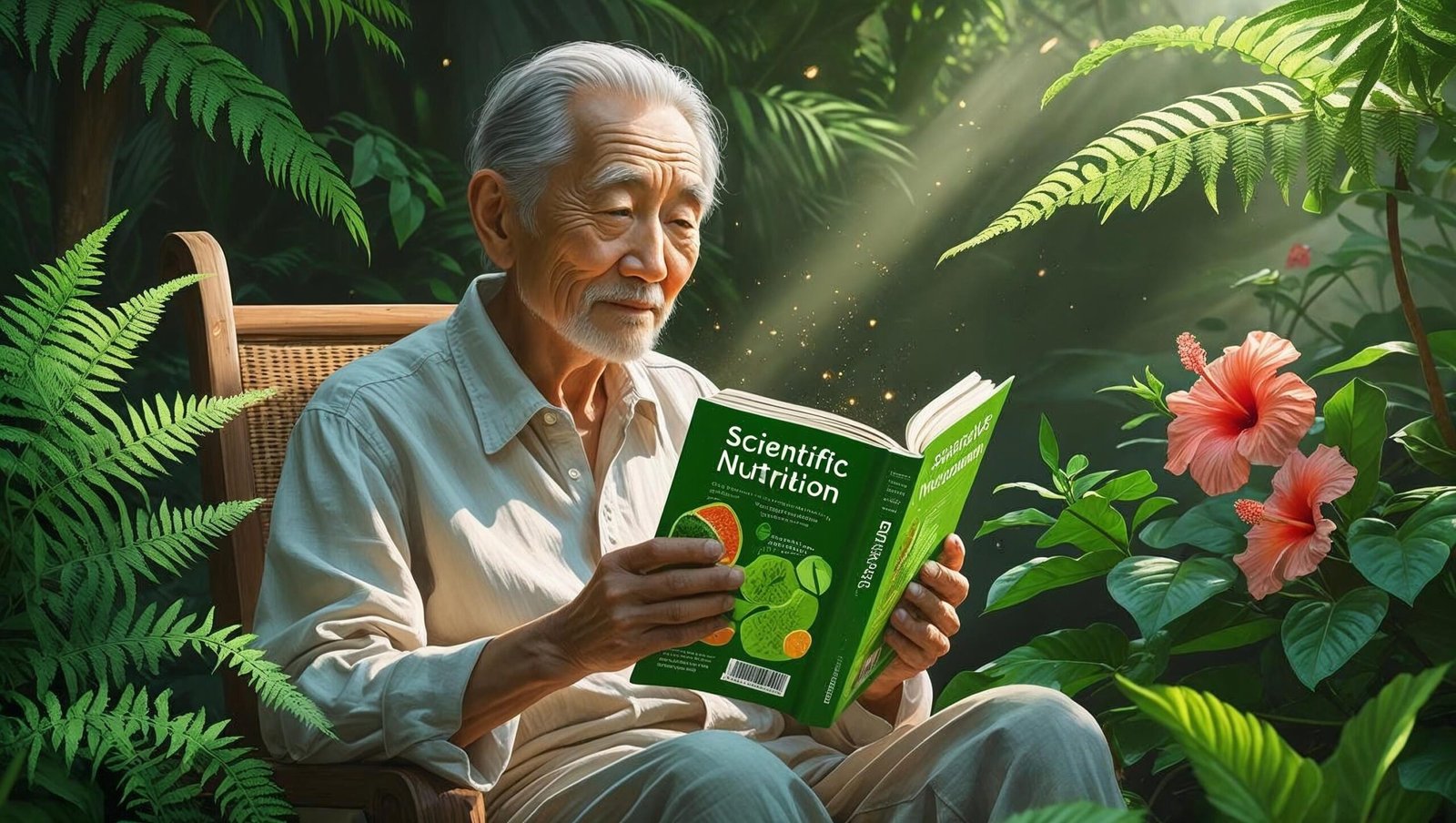Introduction
The China Study by T Colin Campbell is not merely a book—it is a nutritional revelation that boldly challenges what we eat, how we perceive health, and the silent epidemic of chronic diseases in modern society. In this exhaustive review, we shall delve into the essence of the book’s claims, research findings, scientific methodology, and why this work continues to ignite controversy, acclaim, and passionate dialogue.

About the Authors
Dr T Colin Campbell, PhD, is a nutritional biochemist at Cornell University with decades of experience studying the relationship between diet and disease. He co-authored The China Study with his son, Dr Thomas M Campbell II. The research behind The China Study by T Colin Campbell originates from the China–Cornell–Oxford Project, a decades-long epidemiological study that examined diet, lifestyle, and disease in rural China.
The Premise of the Book
At the heart of The China Study by T Colin Campbell lies a bold thesis: a whole-food, plant-based diet is the most effective way to prevent and reverse chronic illnesses like heart disease, diabetes, and cancer. Through extensive statistical analysis and biochemical reasoning, the book argues that diets rich in animal proteins and processed foods are directly correlated with increased disease risk.
Key Themes Explored
1. Diet and Disease Connection
The China Study by T Colin Campbell convincingly establishes the link between Western dietary patterns—characterised by high consumption of meat, dairy, and processed food—and chronic illnesses. Campbell cites evidence from both the China study and other medical research to assert that nutrition is more influential than genetics in determining health outcomes.
2. Plant-Based Eating as a Health Solution
One of the central arguments of The China Study by T Colin Campbell is the efficacy of a whole-food, plant-based diet. According to the book, individuals who adopt such a diet significantly reduce their risk of developing diseases such as cardiovascular ailments, cancer, and type 2 diabetes.
3. Casein and Cancer Growth
The book presents controversial yet compelling research suggesting that casein—the primary protein in dairy—may promote cancer cell growth. The China Study by T Colin Campbell includes controlled experiments on laboratory animals where high-protein diets, especially those based on casein, showed elevated tumour growth.
4. Challenging Medical Orthodoxy
One of the more provocative aspects of The China Study by T Colin Campbell is its critique of the medical establishment, pharmaceutical industry, and nutritional guidelines shaped by economic interests. It boldly asserts that profit motives often override public health.
5. Personal Transformation Stories
The book is peppered with anecdotes of individuals who reversed life-threatening conditions through dietary changes. These stories underscore the practical, real-world applicability of the principles outlined in The China Study by T Colin Campbell.
The Nutritional Landscape Before and After The China Study
Before the publication of The China Study by T Colin Campbell, the nutritional landscape in Western countries was shaped by fragmented science, food industry influence, and decades-old dietary myths. The infamous food pyramid, for instance, promoted heavy grain consumption and lumped fat into one villainous category—without distinguishing between harmful trans fats and beneficial unsaturated fats. Protein was almost sacred in fitness and health circles, and dairy was ubiquitously marketed as essential for bone health.
The China Study by T Colin Campbell disrupted that orthodoxy. Instead of focusing on macronutrient distribution as the key to good health, the book emphasized food quality and origin. Whole, unprocessed, plant-based food was not merely a dietary preference—it was presented as a medical necessity.
Today, in the wake of the book’s popularity, health-conscious circles across the globe are having deeper conversations around what we consume and why. From nutrition courses in universities to clinical discussions in hospitals, the ripple effects of The China Study by T Colin Campbell continue to influence mainstream and alternative nutrition alike.
Whole-Food Plant-Based vs. Vegan Diet: What’s the Difference?
One important distinction often overlooked is the difference between a “vegan” diet and the “whole-food, plant-based” (WFPB) diet advocated in The China Study by T Colin Campbell. A vegan diet eliminates all animal products, but it may still include processed and nutritionally void foods like sugary cereals, refined oils, and mock meats laden with additives.
In contrast, a WFPB diet emphasises:
-
Fresh fruits and vegetables
-
Whole grains
-
Legumes (beans, lentils, peas)
-
Nuts and seeds in moderation
-
Avoidance of oils, refined sugars, and highly processed foods
By this logic, someone eating French fries, white bread, and cola could technically be vegan—but their diet would be a far cry from what The China Study by T Colin Campbell prescribes. The emphasis is not only on eliminating harm, but also on maximising the body’s healing potential through optimal nutrition.

Chronic Diseases and the Power of Prevention
Chronic diseases have reached epidemic proportions in developed and developing nations alike. Heart disease remains the number one killer globally. Type 2 diabetes, once rare, is now a common diagnosis even among teenagers. Cancer rates are on a steady incline. And obesity—often a precursor to these illnesses—is a public health crisis unto itself.
What makes The China Study by T Colin Campbell revolutionary is its prevention-first approach. While modern medicine excels in acute care—trauma, infections, surgical interventions—it struggles with chronic illness. The book posits that these diseases are largely lifestyle-induced, and therefore lifestyle-reversible. This flips the medical narrative from disease management to disease prevention.
In this light, a prescription might look less like a pill bottle and more like a grocery list. Kale instead of statins. Lentils instead of insulin. Berries instead of beta blockers.
Understanding the Role of Nutritional Education
One of the most stinging critiques in The China Study by T Colin Campbell is directed at medical education itself. The book notes that in most Western countries, especially the United States, physicians receive little to no training in nutrition. When doctors are not educated about food as a healing modality, their patients are less likely to consider it either.
The result? A vicious cycle where medication becomes the default response to symptoms, while root causes—diet, stress, exercise—remain unaddressed.
Institutions like Kaiser Permanente and the American College of Lifestyle Medicine are now attempting to bridge this gap. Their medical professionals increasingly refer to The China Study by T Colin Campbell in lifestyle medicine protocols and dietary interventions.
Still, systemic change is slow. Until nutritional literacy becomes a foundational part of medical training, books like this one will remain vital tools for public empowerment.
Cultural Resistance to Plant-Based Living
Despite mounting evidence in support of whole-food, plant-based diets, cultural and psychological resistance remains strong. In many societies, meat is associated with masculinity, wealth, and tradition. Dairy is marketed as a childhood essential. Meals centered around meat are considered “complete,” while plant-based alternatives are seen as lacking or even extreme.
The China Study by T Colin Campbell doesn’t merely advocate a diet; it asks readers to challenge cultural norms. This is no small feat. Eating habits are deeply ingrained and emotionally charged. A shift in food philosophy often demands a parallel shift in identity and community.
For this reason, many who read the book report an initial sense of defensiveness, followed by gradual awakening. Testimonials frequently echo the same pattern: “I thought this was too radical. But the science made sense. And once I tried it—I felt better.”
Economic and Political Implications
Beyond personal health, The China Study by T Colin Campbell touches indirectly on larger economic and political dimensions. It is no secret that food and pharmaceutical industries wield immense lobbying power. Dietary guidelines, food subsidies, and public health messaging are often shaped by corporate interests rather than scientific consensus.
The dairy industry, for example, has long promoted calcium intake through milk despite evidence suggesting that plant-based sources like leafy greens and almonds are equally, if not more, effective. Likewise, the meat industry resists labeling changes that would reflect links between processed meats and cancer.
When read through this lens, The China Study by T Colin Campbell becomes not just a scientific document but a social commentary. It asks readers to be conscious consumers—not just of food, but of information.
Lifestyle as Medicine: A Growing Movement
Thanks to works like The China Study by T Colin Campbell, the concept of “lifestyle medicine” is gaining mainstream traction. More physicians are now recommending:
-
Diet-based reversal of chronic illness
-
Meditation and stress management
-
Regular movement and cardiovascular activity
-
Community and connection for mental well-being
Dr Dean Ornish, Dr Michael Greger, and Dr Neal Barnard—among others—are vocal proponents of this model. Their research aligns with the dietary principles set forth in The China Study by T Colin Campbell, reinforcing the book’s credibility across medical disciplines.
In this movement, food is not only sustenance—it becomes therapy, a preventative strategy, and a cornerstone of holistic healing.

Common Myths Debunked by the Book
There are several persistent myths in the world of nutrition that The China Study by T Colin Campbell challenges:
-
“You need meat for protein” – Plant-based foods like beans, quinoa, tofu, and lentils offer abundant protein without cholesterol or saturated fat.
-
“Milk builds strong bones” – Multiple studies cited in the book associate higher dairy consumption with increased risk of osteoporosis and bone fractures.
-
“Low-carb diets are healthier” – Whole-food carbohydrates (fruits, vegetables, legumes, grains) are rich in fiber and nutrients that protect against disease.
-
“Genes determine your fate” – The book asserts that diet and lifestyle can “turn on or off” certain genes related to cancer and heart disease.
By directly addressing these myths, The China Study by T Colin Campbell gives readers the scientific ammunition to make informed, empowered choices.
Stories of Transformation
Readers from around the world have reported miraculous turnarounds in their health after applying the principles found in The China Study by T Colin Campbell. From reversing type 2 diabetes to eliminating high blood pressure, the testimonials are both moving and motivating.
For instance, a 55-year-old man suffering from angina and prescribed multiple medications reported being symptom-free within 8 months of switching to a whole-food, plant-based diet. Similarly, a woman diagnosed with stage 2 breast cancer opted for a lifestyle intervention alongside treatment and credits her recovery in part to the dietary guidance she drew from the book.
Such stories underscore the practical power of food. They demonstrate that this isn’t about theory—it’s about results.
Final Thoughts
In a time of overwhelming information and nutritional confusion, The China Study by T Colin Campbell offers a clear, science-backed roadmap to better health. It’s not merely a critique of conventional wisdom—it’s a call to action. It empowers readers with knowledge, instills hope, and lays the foundation for a healthier future.
While it may not be the only path to wellness, its message remains potent: what we eat matters more than we ever imagined.
Whether you’re a health professional, a curious reader, or someone facing chronic illness, The China Study by T Colin Campbell might just be the most important book you read this year.
Scientific Depth and Rigor
Unlike many popular diet books, The China Study by T Colin Campbell is deeply rooted in empirical research. The China–Cornell–Oxford Project included data collection from 6,500 individuals across 65 counties in China. The sheer scale and meticulous nature of the data analysis lend tremendous credibility to the conclusions drawn.
However, critics argue that correlation does not imply causation. Campbell counters this by triangulating his findings with laboratory studies and a wide range of epidemiological evidence, making a powerful case for causative links between diet and disease.

Controversies and Criticisms
While The China Study by T Colin Campbell has inspired a global plant-based movement, it has not been without detractors. Critics argue that the book overstates its case and dismisses alternative interpretations of nutritional science. Notable disagreements include:
-
Protein requirements: Many experts argue that animal proteins in moderation are not inherently harmful.
-
Simplification of complex issues: Some feel the book oversimplifies multifactorial diseases like cancer and heart disease.
-
Potential bias: Critics claim that The China Study by T Colin Campbell occasionally cherry-picks data to support its plant-based stance.
Yet, it’s undeniable that the book has opened a critical dialogue about nutrition, public health, and personal agency in disease prevention.
Impact on Public Health and Culture
The impact of The China Study by T Colin Campbell extends beyond academia. It has inspired best-selling documentaries like Forks Over Knives, influenced athletes to adopt vegan diets, and reshaped how laypeople think about food. Health organisations, dietitians, and wellness coaches often reference its findings when advocating for lifestyle changes.
The Book’s Structure and Readability
The China Study by T Colin Campbell is meticulously structured yet accessible. Divided into four main parts—The China Study, Diseases of Affluence, The Good Nutrition Guide, and Why Haven’t You Heard This Before?—the book balances heavy science with compelling narrative. Even readers without a scientific background can grasp the central themes with clarity.
Ethical and Environmental Dimensions
Although primarily focused on health, The China Study by T Colin Campbell also touches upon the ethical and environmental benefits of plant-based diets. It argues that industrial meat production is not only detrimental to human health but also unsustainable and cruel.

Who Should Read This Book?
This book is a must-read for:
-
Health-conscious individuals seeking preventive solutions
-
Patients with lifestyle-related illnesses
-
Dietitians, nutritionists, and wellness coaches
-
Medical professionals open to nutritional science
-
Ethical vegans and environmental advocates
Whether you agree with its conclusions or not, The China Study by T Colin Campbell forces you to re-examine long-held beliefs about food and health.
FAQs About The China Study by T Colin Campbell
Q1: Is The China Study by T Colin Campbell suitable for beginners?
Yes, the book is written in accessible language and includes real-life stories that simplify complex concepts for the average reader.
Q2: Does the book recommend completely avoiding animal products?
Yes, The China Study by T Colin Campbell strongly advocates for a wholly plant-based diet and suggests that even small amounts of animal protein can increase disease risk.
Q3: Is the research in the book peer-reviewed?
Much of the foundational research, including the China–Cornell–Oxford Project, was peer-reviewed. However, the book itself is a synthesis and interpretation of various data points.
Q4: Can this diet reverse chronic disease?
According to The China Study by T Colin Campbell, a whole-food, plant-based diet can not only prevent but also reverse conditions like heart disease, diabetes, and certain cancers.
Q5: What are the biggest criticisms of the book?
Critics argue that the book overstates its claims, simplifies disease mechanisms, and lacks balance in presenting opposing views.
Conclusion
The China Study by T Colin Campbell is a landmark publication that continues to provoke, educate, and inspire. Regardless of whether one fully embraces its plant-based advocacy, the book compels a re-evaluation of modern eating habits, institutional health practices, and the root causes of chronic illness. Its message is simple but profound: the power to prevent disease lies not in a pill bottle, but on our plates.
As you consider your health journey, allow The China Study by T Colin Campbell to challenge your perspectives and, perhaps, transform your life.
🔗 Visit my blog: shubhanshuinsights.com
💬 Join the conversation: What did you learn from The China Study by T Colin Campbell? Do you agree with its conclusions? Comment below and share your thoughts!